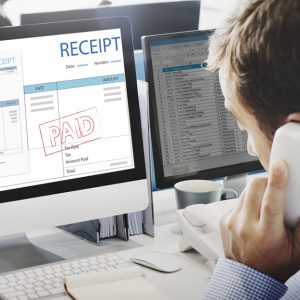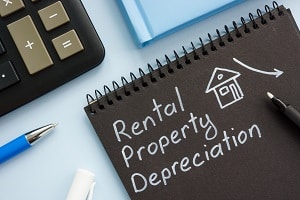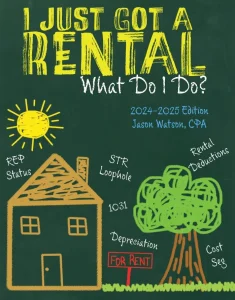
Business Advisory Services
Everything you need to help you launch your new business entity from business entity selection to multiple-entity business structures.
Hey - Our site just had a makeover and we are sorting through the hiccups!
Hey - Our site just had a makeover and we are sorting through the hiccups!

Everything you need to help you launch your new business entity from business entity selection to multiple-entity business structures.

Designed for rental property owners where WCG CPAs & Advisors supports you as your real estate CPA.

Everything you need from tax return preparation for your small business to your rental to your corporation is here.

Table Of Contents


In Smith, the taxpayer converted a former personal residence into a rental property and later claimed depreciation deductions. The property’s ownership history was complex, involving transfers within the family. When the IRS challenged his return, the only issue remaining was whether the taxpayer could substantiate his depreciable basis.
Under long-standing rules, when a property changes from personal to income-producing use, its depreciable basis is the lower of (1) its adjusted basis (original cost plus improvements, minus prior adjustments) or (2) its fair market value (FMV) at the time of conversion. Treasury Regulation § 1.167(g) and § 1.168(i)-4(b) codify this “lesser-of” principle.
The taxpayer in Smith failed on both fronts. He did not provide reliable evidence of either FMV or adjusted basis. His own estimate of FMV was unsupported, and he could not reconstruct the property’s cost history. The Court described his valuation as a “guestimate” that fell short of the precision required for depreciation deductions. Without proof of basis, the tax deduction was denied in full.
The lesson is straightforward: “basis drives depreciation,” and basis must be proven, not assumed.
Many homeowners choose to convert a primary residence into a rental property for various reasons-
While these motivations are logical, the conversion process carries hidden tax consequences. From a compliance perspective, a conversion triggers a change in use, which means a new basis calculation, a new depreciation schedule, and new reporting responsibilities. A failure to document that transition properly can mess up an otherwise perfectly good depreciation tax deduction, as seen in Smith.
The foundation of successful conversion planning is establishing a defensible depreciable basis. To reiterate, Treasury Regulation § 1.168(i)-4(b) dictates that the depreciable basis is the lower of adjusted basis or FMV on the date of conversion. This rule prevents taxpayers from depreciating unrealized appreciation that accrued while the property was used personally. Bummer, right?
For example:
Easy math.
The Smith decision demonstrates how the absence of documentation can unravel a taxpayer’s case. Several tax court cases hinge on recordkeeping and documentation- “your argument and tax position are sound, but your records are garbage.” The court usually finds a way to soften this.
An appraisal or broker opinion prepared contemporaneously (in real time) with the conversion is essential. In addition, records of purchase price, closing statements, and detailed lists of improvements must be maintained to support the adjusted basis calculation.
A structured conversion process might include:
Can a Zillow screenshot serve as a professional valuation? Unlikely. The courts have routinely considered the following to the gold standard-
The Smith ruling reaffirms several broader principles that extend beyond rental conversions:
For homeowners planning a conversion, these principles emphasize the need to move deliberately and document every step.
The conversion of a personal residence into a rental property represents both an opportunity and a trap. The Smith tax court case demonstrates that even well-intentioned taxpayers can lose legitimate deductions when basis and valuation records are incomplete.
Establishing the proper depreciable basis, securing credible appraisals, and maintaining thorough records at the moment of conversion are essential. What may seem like a routine real-estate decision is, in fact, a technical tax event—one that rewards accuracy and punishes shortcuts. That’s a bit dramatic, but you get it.
For homeowners and investors seeking to convert their properties, the message from the Tax Court is clear: document everything, substantiate every figure, and treat the conversion with the same formality as a business acquisition.
 I just got a rental, what do I do? Purchasing a rental property is certainly challenging, but operating one to build wealth and find tax efficiency is equally challenging. This is our second book. Our first book, Taxpayer’s Comprehensive Guide to LLCs and S Corps, was first published in 2014 and was well-received by small business owners and tax professionals, so we thought a book on rental properties and real estate investments would be equally helpful. So, here we are with our second iteration, or the 2025 edition. We update it frequently throughout the year (last update was October 6, 2025).
I just got a rental, what do I do? Purchasing a rental property is certainly challenging, but operating one to build wealth and find tax efficiency is equally challenging. This is our second book. Our first book, Taxpayer’s Comprehensive Guide to LLCs and S Corps, was first published in 2014 and was well-received by small business owners and tax professionals, so we thought a book on rental properties and real estate investments would be equally helpful. So, here we are with our second iteration, or the 2025 edition. We update it frequently throughout the year (last update was October 6, 2025).
Our rental property book starts with entity structures and moves into asset management such as acquisition, cost segregation, rental safe harbors, repairs versus improvements, accelerated depreciation, partial asset disposition, and 1031 like-kind exchange. From there we discuss various rental considerations like passive activity losses, short-term rental loophole, real estate professional status, and material participation including what time counts, and what time doesn’t count.
Finally, the good stuff! Rental property tax deductions such as travel, meals, automobiles, interest tracing, home office and common expenses. Fun!
It is available in paperback for $19.95 from Amazon and as an eBook for Kindle for 15.95. Our book is also available for purchase as a PDF from ClickBank for $12.95.
WCG has a team of real estate CPAs ready to assist you with your rental property and real estate investments. Very few tax professionals and CPA firms specialize in real estate to provide you solid consultation, tax planning including tax reduction strategies, and tax return preparation. We are experts in-
This book is written with the general rental property in mind. Too many resources tell you the general rule but don’t bother to back it up with Internal Revenue Code, Treasury Regulations and Tax Court cases. Our book lays it all out, explains the madness, adds some humor and various conundrums. Example? Water heaters and hot tubs- crazy stuff to consider.
Enjoy! And please send us all comments, hang-ups and static. This book is as much yours as it is ours, except the tiny royalty part- that’s ours. Stop by and we’ll buy you a beer with the pennies.
If you buy our 480-page book and think that we didn’t help you understand rental property tax laws, let us know. We never want you to feel like you wasted your money. If you are ready to add some insightful reading into your day, click on one of the preferred formats. Amazon is processed by Amazon, and the PDF is safely processed by ClickBank who will email you the PDF as an attachment.
 |  |  |
| $19.95 | $15.95 | $12.95 |

Want to talk to us about tax return preparation, tax planning and strategy, and all the other things that go with it? We are eager to assist! The button below takes you to our Getting Started webpage, but if you want to talk first, please give us a call at 719-387-9800 or schedule an discovery meeting.
Jason Watson, CPA is a Partner and the CEO of WCG CPAs & Advisors, a boutique consultation and tax preparation CPA firm serving clients nationwide with 7 partners and over 90 tax and accounting professionals specializing in small business owners and real estate investors located in Colorado Springs.
He is the author of Taxpayer’s Comprehensive Guide on LLC’s and S Corps and I Just Got a Rental, What Do I Do? which are available online and from mostly average retailers.
Table Of Contents

Tax planning season is here! Let's schedule a time to review tax reduction strategies and generate a mock tax return.

Tired of maintaining your own books? Seems like a chore to offload?
Did you have questions about how this works? When converting, do you use an LLC? Have a specific question about real estate and need a tax expert?
The tax advisors, business consultants and rental property experts at WCG CPAs & Advisors are not salespeople; we are not putting lipstick on a pig expecting you to love it. Our job remains being professionally detached, giving you information and letting you decide within our ethical guidelines and your risk profiles.
We see far too many crazy schemes and half-baked ideas from attorneys and wealth managers. In some cases, they are good ideas. In most cases, all the entities, layering and mixed ownership is only the illusion of precision. As Chris Rock says, just because you can drive your car with your feet doesn’t make it a good idea. In other words, let’s not automatically convert “you can” into “you must.”
Let’s chat so you can be smart about it.
We typically schedule a 20-minute complimentary quick chat with one of our Partners or our amazing Senior Tax Professionals to determine if we are a good fit for each other, and how an engagement with our team looks. Tax returns only? Business advisory? Tax strategy and planning? Rental property support?

Everything you need to help you launch your new business entity from business entity selection to multiple-entity business structures.

Designed for rental property owners where WCG CPAs & Advisors supports you as your real estate CPA.

Everything you need from tax return preparation for your small business to your rental to your corporation is here.


